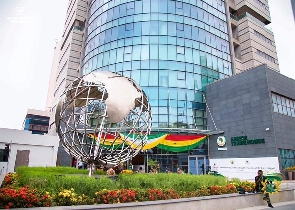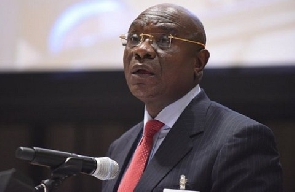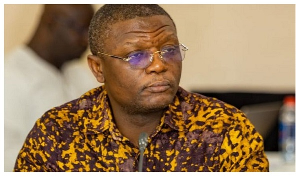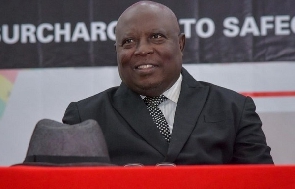A study commissioned by the Business Sector Advocacy Challenge Fund (BUSAC Fund) and conducted by consultants from research and advisory firm Konfidants has exposed gaping challenges the nation is facing with the Africa Continental Free Trade Area Agreement (AfCFTA).
With an emphasis on value-added goods only, the analysis focused on seven product groups that were selected in consultation with industry players and government, namely: agro-processed goods, plastics, pharmaceuticals, mineral oils, textiles, metal manufactures and cosmetics.
For each of the above product sectors, the report titled ‘AfCFTA’s Competitiveness and Opportunity Assessment’, analyzed two main segments –external competitiveness and domestic competitiveness– which left much to be desired.
The study provided a broad understanding of the nation’s trade competitiveness in the continental market, mapped out markets with the greatest potential within the free trade area for Ghana’s key industries and products, and made recommendations for boosting the country’s performance in the AfCFTA.
Benchmarking the operating environment – Ghana versus the most competitive countries
Cost of Credit: Cost of credit is Ghana’s weakest point – the country ranks at the bottom of the list when compared to the top African exporters. The 14.5% policy rate in Ghana as of January 2021 is double the African average of 7%, and also compares unfavorably to 1.5% in Morocco, 3.5% in South Africa, 4.5% Cote d’Ivoire.
Ghana’s 15% domestic credit to private sector (as a share of GDP) is one of the lowest as compared to South Africa (146.5%), Tunisia (82.4%), and Morocco (63.6%).
Cost of Power: Ghana’s current average tariff of 12.9 cents per kilowatt-hour for industrial consumers as of December 2020 is less competitive against countries such as Zimbabwe, Tanzania, Malawi, Botswana, DR Congo, Mozambique, Zambia, Ethiopia – which all had cost of power less than 10 cents per kilowatt-hour as at 2016. Worthy of note is that Ethiopia as at 2016 charged 2.4 cents per kilowatt-hour for consumers.
Productive Capacity: Ghana’s Productive Capacity (Labour Quality & Skills Availability and Innovation & Production Potential Utilization) compares poorly to many of the leading countries in the AfCFTA. According to data analyzed from the World Bank Enterprise Surveys, Ghana’s total productive capacity score out of a possible score of 10 is 4.75 – falling below half of the total score and below the average score for the top African countries.
Customs Efficiency: Ghana’s customs efficiency is not among the best in Africa even though Ghana ranks above the African average. Time efficiency of customs in Ghana, is estimated at 197.3 hours – compared to 40 hours in Kenya, the fastest among the frontier countries. Regarding cost of meeting documentary and border compliance, it costs US$645 in Ghana compared to US$262.7 in Morocco, the cheapest among the frontier countries.
Trade Logistics, Infrastructure and Connectivity: Ghana is currently one of the best performing African countries in terms of Linear Shipping Connectivity into the global shipping network. However, Ghana suffers from poor transport and logistics connectivity to intra-Africa markets.
Dependency on Foreign Inputs: It is also disturbing that Ghanaian firms are the second highest dependents on foreign inputs when compared to the 12 frontier African economies – a situation that could undermine Ghana’s ability to take advantage of the AfCFTA’s Rules of Origin.
Recommendations
The report recommended that the Ministry of Trade and Industry needs to speed up the completion of a clearly defined SMART strategy for AfCFTA implementation and opportunity maximization. The strategy should combine a market share consolidation approach to maintain existing market share in both the domestic economy and existing foreign destinations; a market expansion and diversification approach to find new destinations for existing products; introduce new products in existing destinations; and introduce new products to new destinations.
The report added that government must address the high cost of finance by immediately rolling out, in partnership with the financial industry, a subsidized export financing window for players in critical AfCFTA value chains and continuously reduce the policy interest rate to levels at par with the continent’s 7 percent.
On power and energy cost, the government, the report noted, must aim at reducing Ghana’s high industrial power tariff to about 5 cents per kilowatt-hour for strategic industries and significantly reduce the current heavy dependence on foreign inputs and help Ghanaian firms take advantage of the Rules of Origin under the AfCFTA.
Government needs to prioritize (and private sector players should advocate) for the appropriate state agencies to develop the capacity required to protect Ghana’s market against dumping, especially the institutional capacity needed to prove serious injury arising from dumping – in order to be able to make a case for, and also trigger import defence mechanisms within the confines of the AfCFTA.
Among other recommendation, the report called for prioritization of aggregators and export trading companies to deepen AfCFTA trade intermediation; an urgent need for partnerships to develop and implement a Ghana-AfCFTA Logistics and Transport Connectivity Plan; setting time-bound targets aimed at significantly improving the cost and time efficiency of customs; and development of a plan to transform Ghana’s foreign missions and embassies across Africa.
Business News of Tuesday, 20 April 2021
Source: thebftonline.com

















